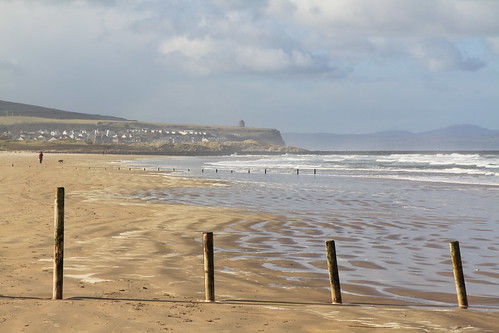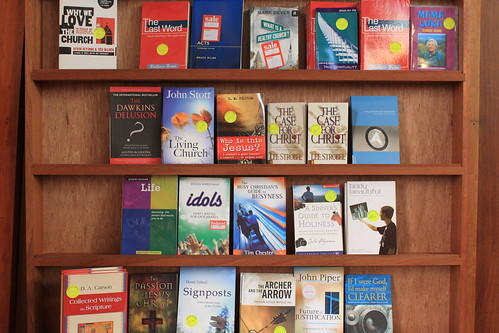The question I want to ask tonight is this: What can God do when his people fail him? It’s a question we could ask when we look at the state of the churches today - we often hear of declining numbers, and the church becoming increasingly like the world. Is God powerless to stop the rot? Does God not care?
As we bring this question tonight, though, it’s not the first time it has been asked. Just think of the crowds who saw Jesus doing miracles like feeding five thousand people or raising Lazarus from the dead, yet they refused to believe, and carried on in their rebellion. Or, as our passage flags up, the aftermath of Elijah’s showdown with the prophets of Baal.
You might remember the story. Israel, the northern kingdom, the people of God, have turned away from following God, and instead have turned towards Baal, a false pagan god. The prophet Elijah called them to turn back to God, demonstrating God’s power first of all over the rain (by causing a drought), and then by sending fire from heaven to consume his sacrifice (after Baal’s prophets failed to get an answer from him). The prophets of Baal have been slain, the people have confessed ‘The LORD, he is God.’ All looks well, until the wicked woman wields her warning: ‘So may the gods do to me and more also, if I do not make your life as the life of one of them by this time tomorrow.’ (2)
Elijah sees that there’s no change at all in the royal family, that it has been a hollow victory. Off he goes, fed and strengthened by angel cakes, to whole way to Horeb (also known as Sinai), the mountain of God. It’s likely he has come, not to a cave, but ‘the’ cave - the very place where Moses encountered God in Exodus 34. Elijah has returned to the place where it all began, where God made his covenant with his people, having rescued them from Egypt.
Sometimes when you read about this passage, it can become a playground for amateur psychologists and psychiatrists, trying to analyse Elijah, but let’s focus on the real hero of the story - not Elijah, but God. Through the passage, we’ll see that God draws near to his people; God judges his people, and God keeps his people.
First of all, God draws near to his people. Elijah has travelled a very long way to get to this point, and as he sits in the cave, then the word of the Lord comes to him, and asks: ‘What are you doing here, Elijah?’ Remember, that here is where the covenant began, and so Elijah reports on the state of the covenant (to slightly modify the State of the Union address the US President gives each year). While Elijah has been very jealous for the Lord, we find that he’s on his own: ‘For the people of Israel have forsaken your covenant, thrown down your altars, and killed your prophets with the sword, and I, even I only, am left, and they seek my life, to take it away.’
Some commentators are very hard on what they see as the whiney Elijah, melodramatic Elijah. Actually, Elijah is stating things as they are. The covenant project looks as if it has failed, God. Time to shut up shop. It’s useless, because the people are so sinful, and now they’re trying to kill the last public witness to the faith.
What God does next might seem very strange. It’s not quite what you expect, is it? Elijah is told ‘Go out and stand on the mount before the LORD.’ Elijah isn’t told off, or told not to worry. Rather, he’s reintroduced to the power of God, or should that be, the God of power?
Just as with Moses after the people of Israel (while Moses was still receiving the Ten Commandments up the mountain) had broken the Commandments with the golden calf; when Moses sees the afterglow of the back of God’s glory as he passes by, so also here for Elijah. The LORD is passing by, and it’s awesome - the wind that shatters mountains and rocks; the earthquake that shakes the mountain; the blazing fire.
Yet despite the power and the noise and the amazing signs, we’re told that ‘the LORD was not in the wind.’ (11) Elijah may have been used to the big powerful showy signs of God’s power - it’s only been a few weeks since the fire from heaven consumed the sacrifice. Yet now, it’s not those things that point to God’s presence. Rather, it’s ‘the sound of a low whisper.’ A still small voice, as an older version puts it. A voice, because, as we’ll see, it is by God’s word that he draws near to his people, as he still does today.
At that sound of the low whisper, Elijah covers his face and goes to meet God. Again, the voice comes to him, and asks him exactly the same question. God draws near to his people, particularly when they are in need, not in terrifying splendour, but in tender nearness.
Our God has not changed - just think of the words of Isaiah describing the Lord Jesus: ‘Behold my servant, whom I uphold... He will not cry aloud or lift up his voice, or make it heard in the street; a bruised reed he will not break, and a faintly burning wick he will not quench; he will faithfully bring forth justice.’ (Isaiah 42:1-3) Our God draws near to his people, taking on flesh, coming to us in our need.
But that’s not all. If God were only to come near in tenderness, then we have someone who sympathises, but is powerless to save. Again, we’ve noticed that God asks Elijah the same question - what are you doing here, Elijah? And again, Elijah gives the same reply. It’s not that he’s still whiny, that (as you might say), you couldn’t like him if you reared him. He’s stating things as they stand. Israel, the people of God have failed him, and Elijah tells it as it is.
Elijah can’t do anything about it - he has tried, and the people are still against him, led by Jezebel - it must be God who does something to rescue the situation. So we come to our second aspect of God working when his people fail him - that of judgement. Perhaps surprisingly, seeing Elijah has just travelled the xxx miles from Jezreel to Horeb, God now sends him back! On the way, Elijah is given three important tasks to complete: ‘Go, return on your way... you shall anoint Hazael to be king over Syria. And Jehu... you shall anoint to be king over Israel, and Elisha... you shall anoint to be prophet in your place.’
This anointing with oil on the head is a sign that God has chosen the person for special office - for kingship or prophetic ministry. Did you notice it’s not just the king of Israel to be anointed, but also a new king of Syria. Why is God sending Elijah to do this? Is he moving into the realm of Middle Eastern politics, like an early forerunner of Tony Blair’s middle eastern peace mission?
These anointings are the means that God will use to judge wicked Israel, and remove the house and dynasty of Ahab and Jezebel from the throne. Did you see, it’s Jehu the son of Nimshi (not a son of Ahab), so a new dynasty will begin, and Ahab’s family will be removed. Or, as God tells Elijah, ‘The one who escapes from the sword of Hazael shall Jehu put to death, and the one who escapes from the sword of Jehu shall Elisha put to death.’ This bloodshed will be the temporal means of judgement on those who have turned away from the Lord and his covenant. Indeed, some see another parallel between the terrifying display of power (wind, earthquake, fire) and the three anointings and the promise of bloodshed.
God cannot stand by while those who bore his name turned away to follow other gods. God is in control, even if his judgement can seem a long time in coming. Remember that this judgement here is primarily aimed at the leaders of God’s people, those who have led them astray - Jesus says something along the same lines when he says ‘whoever causes one of these little ones who believe in me to sin, it would be better for him to have a great millstone fastened around his neck and to be drowned in the depth of the sea.’ (Matt 18:6) Pray for Christian leaders, that they won’t lead people astray.
So far we’ve seen God draws near to his people, as well as acting in judgement. While Elijah may have lamented he was the only one left (in public anyway), the last verse of our reading displays God’s special grace of the preservation (and perseverance) of the saints. God keeps his people. While those who have followed Baal will be judged, there yet remains a remnant of faithful people - ‘Yet I will leave seven thousand in Israel, all the knees that have not bowed to Baal, and every mouth that has not kissed him.’ God keeps his people free from idolatry - even despite the wicked times of Ahab’s day.
Those doctrines of God do not change from Elijah’s day to ours, because God does not change. Yet as the early church was growing, the very same question was being asked of Paul. Has God’s promise failed because so many Jews are not trusting in Jesus? When the visible people of God appear to be failing God, what will God do about it? God draws near to his own, judges those who reject and rebel, but keeps his own people. Turn with me to Romans 11. Paul is speaking of this very passage as he looks to Israel failing to believe in Jesus the Messiah: ‘I ask then, has God rejected his people? By no means!... Do you not know what the Scripture says of Elijah, how he appeals to God against Israel?... But what is God’s reply to him? “I have kept for myself...” So too at the present time there is a remnant, chosen by grace.’ (Romans 11:1-5)
Within the visible church there will be those who are far from God. To all intents and purposes, it looks as if we have failed utterly. But God draws near, judges, and keeps his people. Don’t fear - keep trusting in God through the hard times. God is in control.
This sermon was preached in St Elizabeth's Church, Dundonald on Sunday 13th February 2011.




